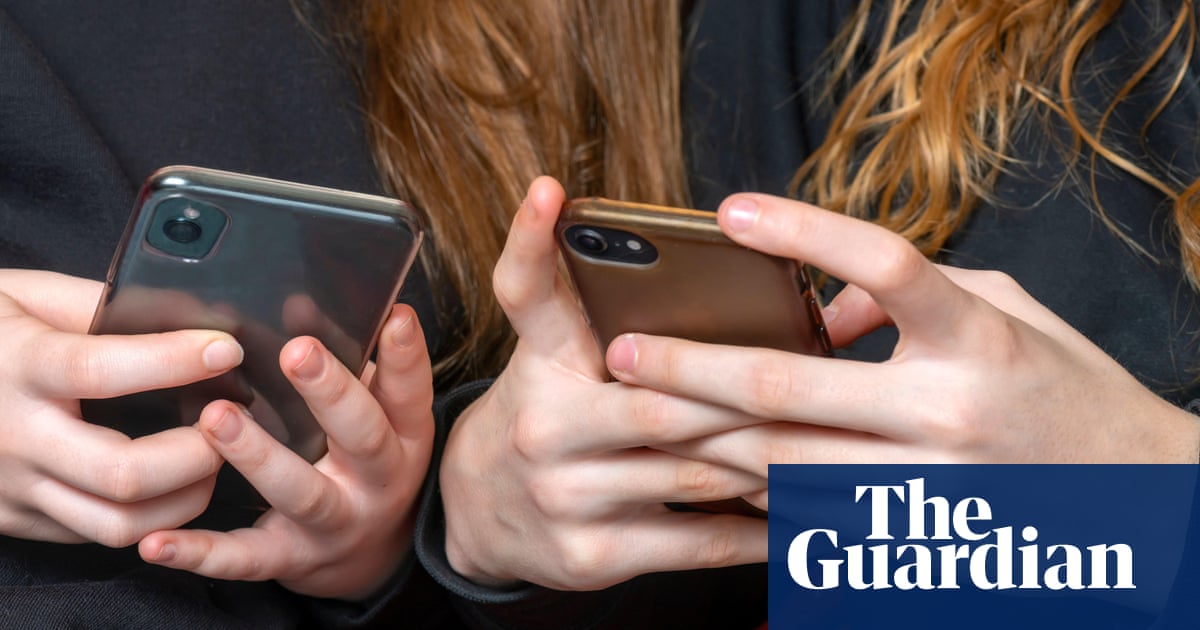Ministers are looking at giving children an “app cap” or curfew to prevent them becoming addicted to social media, the technology secretary has indicated.
Peter Kyle, whose department is responsible for online safety, said he wanted to do more to protect children from excessive use of smartphones, and help them have a healthy relationship with technology.
He was pressed on the issue afterthe Mirrorreported over the weekend that Kyle was looking at further restrictions. He is understood to be considering options such as two-hour curfews for social media apps, or blocks on children accessing content after 10pm or during school hours.
Asked on the BBC’s Laura Kuenssberg on Sunday whether he was looking at an “app cap”, Kyle said: “I’m looking at things that prevent healthy activity, I’m looking at some of the addictive nature of some of the apps and smartphones.
“I’m trying to think how we can break some of the addictive behaviour and incentivise more of the healthy developmental … and also the good communicative side of online life.”
He said he knew people felt strongly about protecting children and that new legislation on online safety, being rolled out now, could be strengthened further.
“This year we’ve had illegal content that needs to be taken down, but in July, age-appropriate material must be supplied by platforms, otherwise there’ll be criminal sanctions against them,” Kyle said. “And in this time, I’ve been looking very carefully about what we do next.
“I want to nail down harder on safety, but I want to use that safety for a purpose, which is to understand what is a healthy online life for children in the same way we understand what health means in the physical, offline world, and I’m trying to incentivise the behaviours and stop the barriers towards moving towards that healthy life.”
Kyle has previously backed away from the idea of a total social media ban for under-16s, saying it is “not on the cards” for now, but he has also said that all options are on the table in terms of discussing how to keep children safe from online harms.
Earlier this year, after opposition from ministers, the Labour MP Josh MacAlisteramended his private member’s billthat had proposed raising the age of digital consent from 13 to 16, meaning social media companies would have required a parent’s permission to handle the data of a child under that age. The bill now commits the government to researching the issue further rather than implementing immediate change.
Nearly a quarter of children spend more than four hours a day on an internet-enabled device, a survey for the children’s commissioner suggested earlier this year.
A YouGov poll of 502 children in England aged eight to 15 found that 23% spent more than four hours a day using an internet-enabled device with a screen, such as a computer, phone, tablet or gaming console.
One in four (25%) spent two to three hours a day on such a device, while a fifth (20%) spent three to four hours a day, according to the survey, which was carried out in March and April.
As well as Kyle’s proposals, the education secretary, Bridget Phillipson, is looking at the effects of smartphone bans in some schools in England, a policy idea supported by the National Education Union amid growing concerns about the impact of social media on children.
The current non-statutory guidance states that schools should prohibit the use of mobile phones throughout the school day, during lessons as well as at break and lunchtimes, but does not say how schools should enforce the bans.
While smartphones are very popular among children, there is also a backlash among some parents. The Smartphone Free Childhood campaign launched a “parent pact” in September in which signatories committed towithhold handsets from their childrenuntil at least the end of year 9, and to keep them off social media until they are 16.
